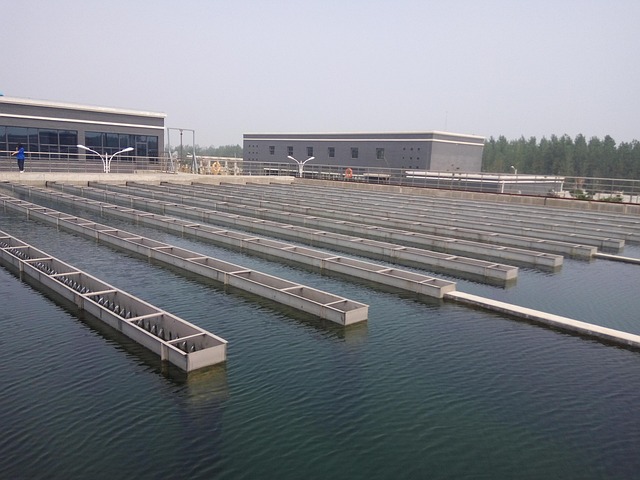In the UK, medical translation services for physicians' treatment plans are strictly regulated by GDPR, MDR, and NHS standards to ensure patient safety and precise communication. Specialized translators with medical expertise bridge language gaps in complex procedures, reducing errors and enhancing patient understanding. Accurate translations are vital for legal compliance, effective care, and avoiding reputational risks for healthcare providers. Choosing the right translation services requires expert medical translators with experience in international healthcare documentation and robust quality assurance processes to meet UK standards. AI and machine learning are revolutionizing these services, offering enhanced speed, accuracy, and compliance while streamlining administrative tasks.
In the dynamic landscape of healthcare, ensuring regulatory compliance is paramount, especially with cross-border treatments. This article guides you through navigating the intricate process of translating physician’s treatment plans in the UK, highlighting key considerations and best practices. From understanding the UK medical translation environment to implementing stringent quality assurance, we explore strategies to maintain compliance. Discover how choosing the right services and adopting future technologies can enhance accuracy and patient safety, ensuring your treatment plans meet the highest legal standards.
- Understanding UK Regulatory Landscape for Medical Translations
- The Role of Accurate Treatment Plan Translations
- Challenges in Ensuring Compliance During Translation Process
- Choosing the Right Translation Services for Physician's Treatment Plans
- Quality Assurance Measures for Medical Document Translations
- Legal Implications of Non-Compliance: A UK Perspective
- Best Practices for Maintaining Regulatory Compliance in Translation
- Case Studies: Success Stories in UK Treatment Plan Translations
- Future Trends in Technology for Enhanced Regulatory Compliance
Understanding UK Regulatory Landscape for Medical Translations

The UK’s medical translation services sector is heavily regulated, especially when it comes to translating physicians’ treatment plans. This intricate landscape is designed to protect patient safety and ensure the accuracy of healthcare information. When providing translation services for physician’s treatment plans in the UK, it’s crucial to have a deep understanding of key regulations such as the General Data Protection Regulation (GDPR) and the Medical Devices Regulation (MDR). These laws dictate how personal data, including health records, can be handled and shared.
Moreover, the National Health Service (NHS) has its own standards and guidelines for translating medical documents, emphasizing clarity, precision, and cultural appropriateness. Healthcare professionals must rely on qualified translators who are not only fluent in both languages but also have expertise in medical terminology to ensure compliance with these regulations. This meticulous approach guarantees that treatment plans accurately convey the intended medical information, thereby facilitating effective patient care and avoiding potential legal issues.
The Role of Accurate Treatment Plan Translations

Accurate translations of treatment plans are vital in ensuring patient safety and legal compliance within the UK healthcare sector. When medical professionals provide care to an international patient, clear communication is essential. Treatment plan translations facilitate effective dialogue between caregivers and patients, especially when dealing with complex medical procedures or rare conditions that may not have direct equivalents across languages.
Professional translation services for physicians’ treatment plans play a crucial role in bridging the language gap. These services employ qualified translators who specialize in medical terminology to deliver precise and culturally sensitive translations. By ensuring that treatment plans are accurately conveyed, healthcare providers can minimize errors, enhance patient understanding, and comply with UK regulations, such as those set by the General Data Protection Regulation (GDPR) and the National Health Service (NHS).
Challenges in Ensuring Compliance During Translation Process

Ensuring regulatory compliance during the translation process for physicians’ treatment plans in the UK presents several unique challenges. One significant hurdle is navigating the complex and evolving nature of healthcare regulations, which demand precise and up-to-date translations. Medical terminology is intricate and often requires specialized knowledge to convey accurately, especially when translating between languages with distinct grammatical structures and cultural nuances.
Another challenge lies in maintaining consistency across translated documents. Treatment plans must remain faithful to their original content while adapting to linguistic differences. This necessitates close collaboration between medical experts and translators to ensure that essential information, including dosage instructions, potential side effects, and contraindications, is conveyed precisely, avoiding any misinterpretation that could impact patient safety. Translation services for Physician’s Treatment Plans UK require meticulous attention to detail and a deep understanding of both the source and target languages and cultures.
Choosing the Right Translation Services for Physician's Treatment Plans

Selecting the right translation services is paramount when it comes to ensuring accurate and compliant translations of physicians’ treatment plans in the UK. With a wealth of medical terminology and specific regulatory requirements, only professional translators with expertise in both languages and healthcare can deliver precise results. Look for providers who employ medical professionals or linguists with experience in clinical settings to guarantee an understanding of complex concepts.
When evaluating translation services for your physician’s treatment plans, consider their experience with international healthcare documentation, adherence to UK regulatory standards, and the use of advanced translation technologies. Reputable agencies will have a proven track record of handling sensitive medical content and maintaining patient data privacy. They should also offer quality assurance processes, including proofreading and editing by subject matter experts, to ensure the highest level of accuracy.
Quality Assurance Measures for Medical Document Translations

When it comes to translation services for Physician’s Treatment Plans UK, quality assurance is paramount. It involves a meticulous process that guarantees accuracy and consistency in medical document translations. The first step is establishing clear communication channels with the healthcare providers to understand the nuances of the treatment plans. This includes seeking clarifications on technical terms and specialized medical jargon.
Next, employing a team of expert translators with extensive medical experience is crucial. They should be proficient in both the source and target languages, ensuring seamless translation without losing critical information. Additionally, implementing rigorous review processes like peer review and proofreading further enhances accuracy. This comprehensive approach ensures that treatment plan translations not only meet but exceed UK regulatory standards, providing reliable and effective communication for all healthcare stakeholders.
Legal Implications of Non-Compliance: A UK Perspective

In the UK, the legal implications of non-compliance with regulations surrounding treatment plan translations can be severe. The Data Protection Act and General Data Protection Regulation (GDPR) emphasize the protection of personal data, including medical information. Failure to ensure accurate and compliant translations can lead to significant fines and legal repercussions for healthcare providers. These regulations require that patient records and treatment plans be handled securely and with utmost confidentiality, demanding a high standard from translation services for Physician’s Treatment Plans UK.
Moreover, the NHS (National Health Service) has strict guidelines on documentation and communication, ensuring that all patient-centric materials, including treatment plans, are accessible, clear, and culturally appropriate. Non-compliance may result in legal challenges, damage to reputation, and loss of trust from patients and healthcare professionals alike. Therefore, it is paramount for medical institutions to partner with reputable translation services specialized in healthcare documentation to avoid these legal pitfalls and maintain the highest standards of care.
Best Practices for Maintaining Regulatory Compliance in Translation

When providing translation services for Physician’s Treatment Plans in the UK, adhering to regulatory compliance is paramount. Best practices include ensuring that translators possess relevant medical qualifications and are experienced in translating clinical documents. This minimizes errors and guarantees accurate communication of critical medical information. Additionally, employing a rigorous quality assurance process involves multiple reviews by expert linguists and medical professionals to verify accuracy, clarity, and consistency.
Regular updates on UK healthcare regulations and guidelines are essential. Translators should stay informed about changes in terminology, syntax, and legal requirements to produce up-to-date translations. Utilizing specialized translation software and maintaining a consistent style guide also enhance compliance. This ensures that all documents adhere to industry standards and best practices for clarity and accessibility, ultimately facilitating patient safety and effective treatment.
Case Studies: Success Stories in UK Treatment Plan Translations

When it comes to ensuring UK regulatory compliance in treatment plan translations, case studies offer valuable insights into successful implementations. Many healthcare providers and pharmacies in the UK have benefited from professional translation services for Physician’s Treatment Plans, streamlining their processes and maintaining adherence to strict regulations. For instance, a leading hospital chain in London collaborated with a reputable translation agency to translate prescription details from foreign languages into clear, concise English. This initiative not only improved patient safety by reducing medication errors but also facilitated seamless interactions between multilingual patients and healthcare staff.
Another success story involves a community pharmacy based in Manchester, which encountered challenges when serving an increasingly diverse customer base. By engaging specialized translation services for treatment plans, they were able to provide accurate translations of prescription instructions, ensuring that all patients received clear guidance on their medication regimens. This proactive approach not only enhanced patient satisfaction but also mitigated potential legal risks associated with poor communication. These case studies demonstrate the significance of high-quality translation services in facilitating effective healthcare delivery within the UK’s stringent regulatory framework.
Future Trends in Technology for Enhanced Regulatory Compliance

The future of translation services for Physicians’ Treatment Plans in the UK is poised to be transformed by emerging technologies, enhancing regulatory compliance and efficiency. Artificial Intelligence (AI) powered tools are set to play a significant role, offering rapid and precise translations with advanced language understanding capabilities. These innovations can ensure consistency in terminology across various plans, minimizing errors and miscommunications that could impact patient care and legal standing.
Additionally, machine learning algorithms can adapt and improve over time, refining translations based on feedback and context-specific data. Integration of these technologies into existing workflows can streamline the process, allowing healthcare professionals to focus more on patient needs rather than administrative tasks. This trend promises a future where regulatory compliance in treatment plan translations is not only met but exceeded through advanced, user-friendly solutions.
When it comes to healthcare, precision and regulatory adherence are paramount. For physician treatment plans translated in the UK, understanding the intricate web of regulations is essential. By employing reputable translation services specialising in medical documents, implementing robust quality assurance measures, and staying abreast of technological advancements, professionals can ensure compliance with UK laws while maintaining effective communication for patient care. Choosing the right translation partner who understands the nuances of healthcare terminology and regulatory landscapes is key to successful outcomes, fostering trust, and upholding the highest standards of practice.
